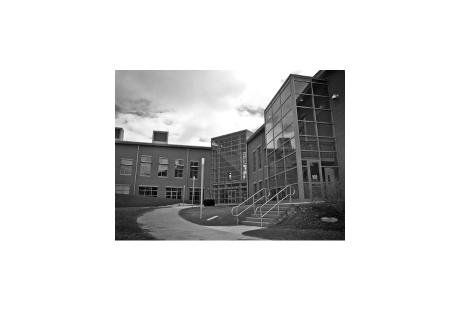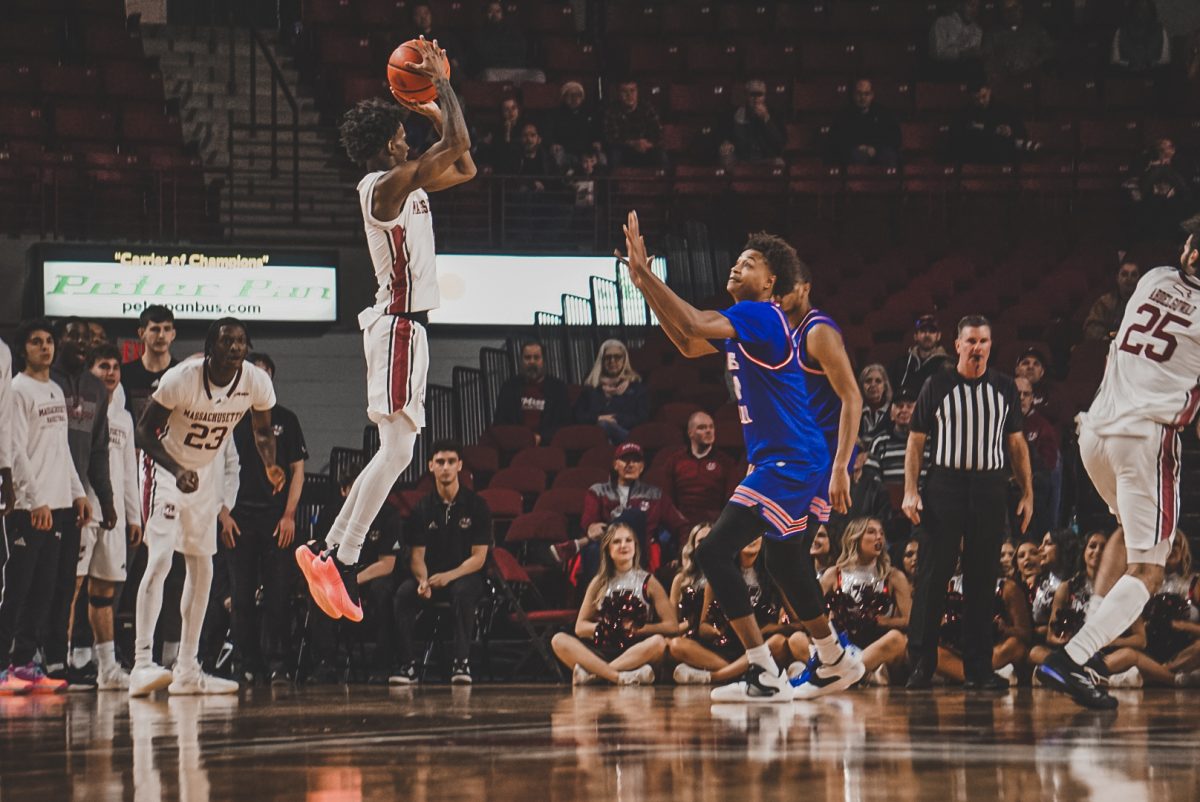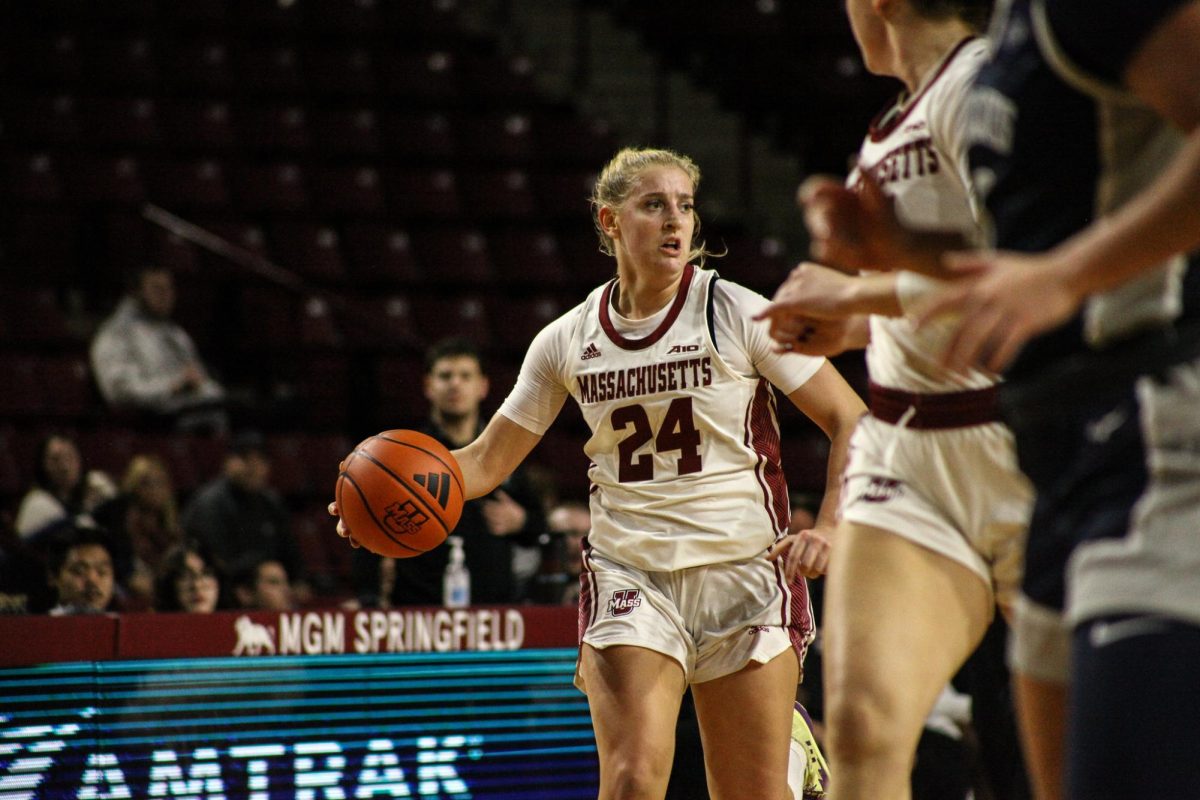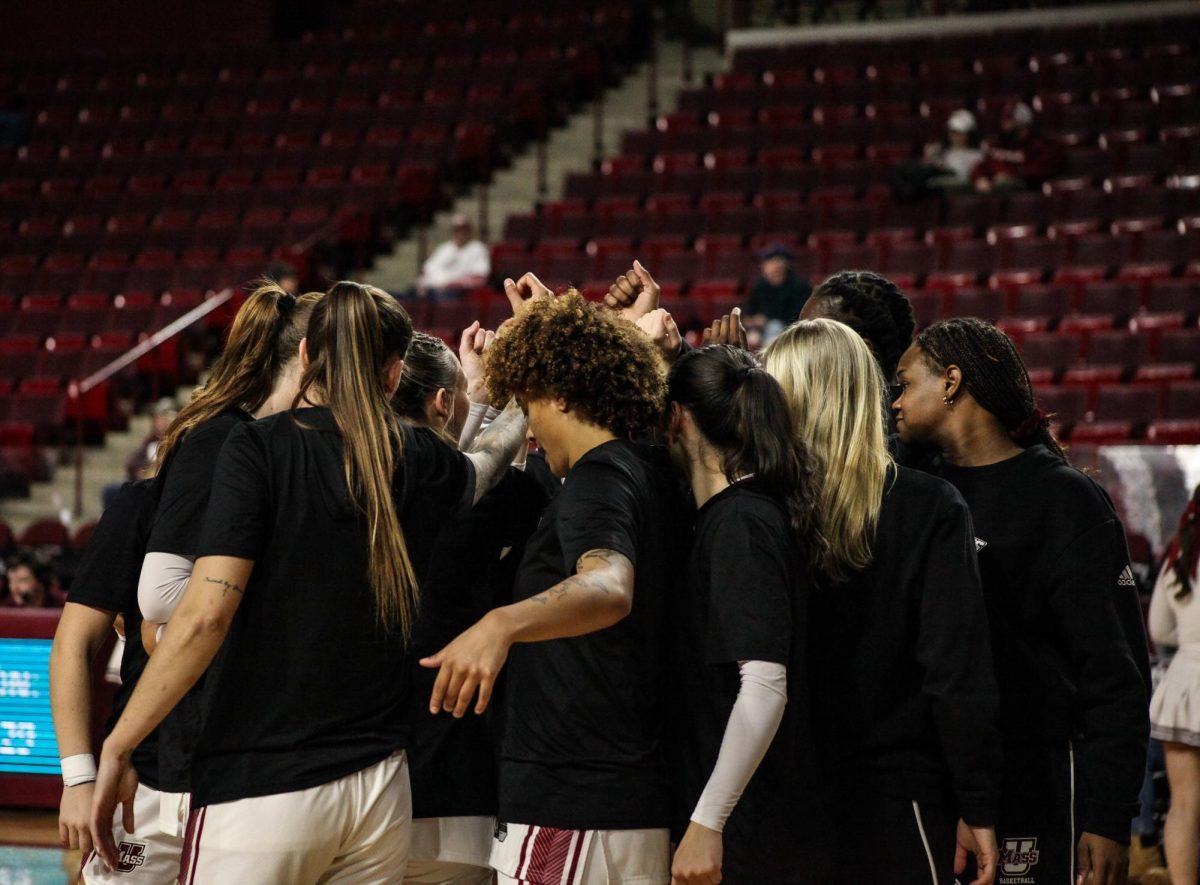 Michael Phillis, Collegian
Michael Phillis, CollegianThe University of Massachusetts has unofficially joined the green movement sweeping the nation. Evidence is everywhere – from the abundance of local produce at the dining commons to the recycling bins in each dorm. The efforts are capturing attention both locally and nationally.
Within the past month, Ken Toong, director of Dining Services, received both the state’s Faces of Agriculture Award and the 2008 Blue Ribbon Award for his contributions and support of local farmers and agriculture. According to Toong, less than 10 percent of produce at the Dining Commons came from local farmers in 2002. This year, that figure has risen to 23 percent.
For years, Dining Services has led in sustainability efforts at UMass. They buy local produce, dairy, and meat from local farmers whenever possible, and serve only sustainable seafood. They compost food waste, use OS1 – a certified green cleaning program, offers the Small Plate, Big Flavor program to help reduce food waste, and even recycle grease. This semester they helped kick off the fall semester with an all-green barbecue, featuring biodegradable products and local foods.
“Everything was green; from the milk to even the beef,” said Toong, describing the barbecue. “We want to promote UMass being green as much as possible because there’s great opportunity, especially with new students.”
Although UMass received an overall grade of a “C+” in a report issued by the Sustainable Endowments Institute – one of its highest marks was in the food and recycling category. The institute looks at college campuses and issues a report card each year rating campuses on their commitments to sustainability.
When mentioning food and recycling, it’s important to mention the collaboration of Dining Services and the Office of Waste Management. Together, they ensure that hundreds of tons of food waste are diverted from landfills every year.
For the past 17 years, UMass has utilized a recycling program. According to John Pepi, director of the Office of Waste Management, just about every office, lab, classroom and dormitory in each residence hall has the necessary resources to recycle.
Pepi credits the state’s recycling facility in Springfield for much of the Office of Waste Management’s success. The facility allows materials to be collected while mingled, so people don’t have to waste time sorting.
Pepi advises students that the easiest way to help the environment is by recycling.
“When we see ourselves as part of a larger community doing our share to reduce global warming and greenhouse gas emissions, and conserve energy, recycling is the best choice,” Pepi said.
One of the biggest problems Pepi faces is making students more aware of recycling practices.
Fortunately, the Eco-Rep program may just be the solution Pepi needs. The Environmental Sustainability and Energy Conservation Campaign officially introduced a pilot version of the Eco-Rep program in eight residence halls on campus in which students teach other students about the environment. Josh Stoffell and Suzanne Hale, student representatives for the Environmental Performance Advisory Committee, oversee the program and choose talking points for the eco-reps.
Stoffell, who helped launch the campaign, is also the acting president and founder of Students for Environmental Awareness and Action (SEAA). He suggests that UMass hire a sustainability director for the campus to improve the organization of green initiative efforts.
“Dining Services is doing one thing, SEAA is doing another, Auxiliary Services is doing another – and they’re all doing good things, but it’s all very disjointed. What we need is someone who can assemble all this into one solid effort,” he said.
Such green initiatives have administrators taking a closer look at the reasoning behind the movement such as saving money. The new state-of-the-art Studio Arts Building is one of the most efficient buildings on campus.
The $26.5 million project was built using sustainable building materials, uses a natural ventilation system, and employs several measures to conserve energy and water.
According to Simi Hoque, an assistant professor in Green Building, there are currently no green certified buildings on campus.
Hoque suggests that UMass have full energy audits for all its buildings on campus. She says this would mean all the windows and ventilation, lighting systems, air qualities and pollutants, and insulation would be reported in evaluations describing the building’s total environmental performance. Then these would be measured against performance standards set by a green certification program by Leadership in Energy and Environmental Design (LEED) for existing buildings. All the university would have to do is the necessary renovations suggested by the program.
Building energy efficient buildings could be this nation’s first step towards energy independence, said Hoque.
“A major problem buildings have on the environment is that they consume 40 percent of the energy produced in this country. If we were to become more cognizant of the fact that buildings could become more energy efficient, we’d be well on our way towards a more energy independent nation,” Hoque said.
Despite the significant amount of resources UMass has invested in concerning the advancement of environmental action and research, we scored lower in the Sustainable Endowment’s green report card than any of the other Five Colleges.
However, this doesn’t mean UMass is a lost cause at trying to improve its grade for next year’s report. According to Mark Orlowski, executive director of the institute, UMass scored highest in more visual categories while overlooking endowment transparency and shareholder engagement.
“There are lots of reasons for colleges to go green,” he said. “Before students even step onto a college campus, many applicants are interested in whether a school is sustainable or not. From the admissions side, it encourages more students to apply,” Orlowski said.
As environmental research advances, it’s inevitable UMass will have a more active role in helping the environment. Progress is well underway for the university, and some larger projects are slated for the future.
The UMass Bursar’s Office is one of many departments on campus making efforts in going green this semester. The Bursar’s Office has eliminated its paper system and is exclusively offering online billing to help eliminate paper waste.
The Campus Consciousness Tour is coming to UMass on Nov. 18. The music group O.A.R. has just announced a partnership with the environmental group Reverb for a tour offering an environmental concert event at several college campuses. The tour will make its first stop at UMass, and one feature of the tour will be an Amherst Town Hall meeting in the Campus Center where different ideas of easier ways to become sustainable will be discussed.
“I think for a band like O.A.R. to talk about these issues instead of somebody like me to say it carries a little more weight,” said Stoffell, the SEAA president.
Other news indicating UMass is furthering its green efforts include some plans by Dining Services. Ken Toong revealed his latest plans to continue supporting local agriculture. He hopes to increase the intake of local produce to 25 percent by 2010. Toong also says plans to renovate Worcester Dining Commons to become a more energy efficient building are scheduled for 2010.
The University could have its first green certified building by the summer of 2010. This green initiative involves the new campus police station that is still in planning mode. The Facilities and Planning Department is hoping to make the new police station a LEED certified gold standard building.
Frank Godinho can be reached at [email protected]






